US targets Iran-backed militia in Syria for second day in a row

The United States launched airstrikes against Iranian proxy forces in Syria early Tuesday local time, marking the second consecutive day of strikes following attacks on US forces.

The United States launched airstrikes against Iranian proxy forces in Syria early Tuesday local time, marking the second consecutive day of strikes following attacks on US forces.
The US military announced, “Today, U.S. Central Command (CENTCOM) forces conducted strikes against an Iranian-backed militia group’s weapons storage and logistics headquarters facility. These strikes were in response to a rocket attack on U.S. personnel at Patrol Base Shaddadi.”
Although the US has occasionally targeted Iranian-backed militia units in Syria, Iraq and Yemen, strikes on two consecutive days has been less common.
Iran-aligned Houthis in Yemen also announced on Sunday that the US and Britain launched raids on the Yemeni capital Sanaa, the Amran governorate and other areas. Houthis have been attacking commercial shipping in the Red Sea region for the past one year, crippling free navigation. They have also occasionally fired on US and allied naval forces.
The US airstrikes follow the Pentagon’s recent deployment of additional naval and air assets to the Middle East, including B-52 heavy bombers stationed in the Persian Gulf. This escalation aligns with rising military tensions between Iran and Israel shortly before the US presidential election and the upcoming “lame-duck” period for the Biden administration.
CENTCOM said in its statement that the latest air attack in Syria “will degrade the Iranian backed groups’ ability to plan and launch future attacks on U.S. and Coalition forces who are in the region to conduct D-ISIS operations.”
The statement also quoted CENTCOM commander, Gen. Michael Erik Kurilla saying, “We have made it clear that attacks on U.S. personnel, partner forces and facilities will not be tolerated and that we retain the right to defend ourselves. U.S. Central Command, alongside our regional partners, will aggressively pursue any threat to US forces, allies, partners, and security in the region.”
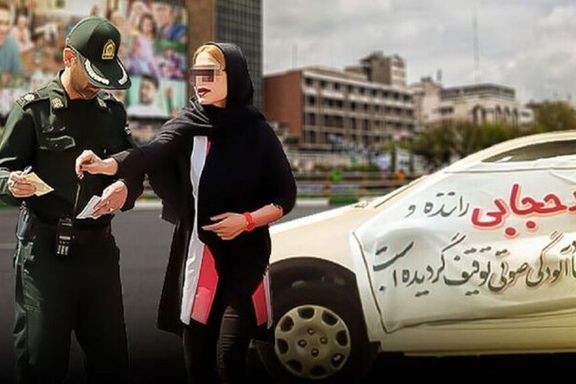
An Iranian state Islamic body announced plans on Tuesday for a new Tehran clinic to treat women flouting mandatory headscarves, in the latest example of authorities treating opponents of the rule as mentally ill.
Iran’s first counseling clinic explicitly dedicated to promoting mandatory hijab laws will provide "scientific and psychological treatment for hijab removal," said Mehri Talebi Darestani, the woman due to oversee the facility.
“The establishment of this center will be for the scientific and psychological treatment of removing the hijab, specifically for the teenage generation, young adults, and women seeking social and Islamic identity and visiting this center is optional," she added.
The wording of the clinic's mission statement closely resembles that of substance abuse facilities. Prominent activists and human rights advocates have condemned official attempts to pathologize opposition to the hijab.
A university student who stripped in apparent protest at harsh treatment by dress code enforcers was detained and sent for mental health treatment, officials said this month. Authorities have frequently described as insane proponents of the country’s Woman, Life, Freedom anti-hijab movement, which was sparked by the September 2022 death of Mahsa Amini while in the custody of morality police.
A controversial leader at the helm
Darestani's office is part of Iran's Headquarters for Promotion of Virtue and Prevention of Vice, the body is responsible for defining and enforcing strict religious standards in society, particularly women's dress.
It is led by a man, Mohammed Saleh Hashemi Golpayegani, a direct appointee of appointed by Iranian Supreme Leader, Ali Khamenei.
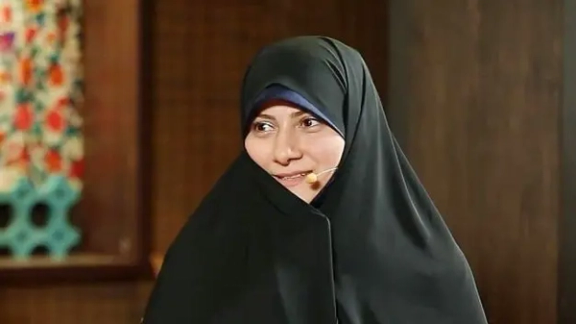
Talebi Darestani said that the clinic responds to visits by women and families pressured into non-compliance with hijab laws, adding that the project aligns with a roadmap for promoting “dignity, modesty, chastity, and hijab.”
A focus of controversy in the past, Talebi Darastani has supported and promoted child marriage on state television.
Previously the head of the Ministry of Labor's Inspection Center, she was dismissed from that post in 2023 under unclear circumstances, fueling debate over her recent appointment to her new hijab enforcement role.
Responses and growing tensions over hijab enforcement
Recent public reactions to the clinic show persistent tensions surrounding hijab enforcement. A widely publicized incident last month at the Islamic Azad University’s in Tehran brought the issue back into the global spotlight.
In protest against enforcement measures on campus, a female student named Ahoo Daryaei, removed her clothing in defiance of security staff intervening over her hijab.
Daryaei was transferred to a psychological center shortly after her arrest, drawing accusations from activists that the government is attempting to undermine her protest by portraying her actions as mentally aberrant.
This practice of publicly gaslighting protestors has been seen by critics as a deliberate strategy to delegitimize dissent.
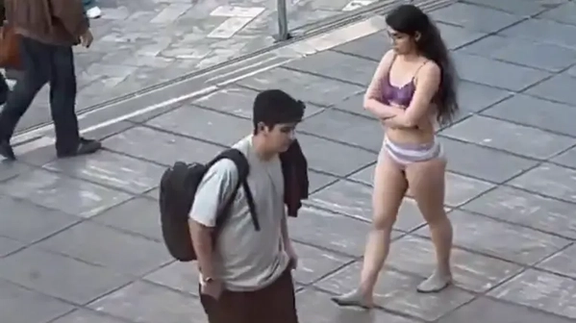
Iranian authorities have increasingly utilized mental health institutions to manage dissent, a method condemned by human rights advocates as psychologically abusive and manipulative.
Following the 2022 protests, artists who posted images of themselves without a hijab, including actresses like Afsaneh Bayegan, Azadeh Samadi, and Leila Bolukat, received court-ordered mandates for weekly visits to psychological centers for mental health certificates in response to their conduct.
The ethical debate over state involvement in psychiatry
Iran’s psychiatric and psychological community has responded critically to the state’s perceived manipulation of mental health diagnoses to silence opposition.
In 2023, four Iranian psychiatric associations issued a joint statement condemning the government’s use of non-scientific diagnoses such as anti-family personality disorder as a pretext for punishing hijab protestors.
The statement decried the practice as a violation of professional ethics, highlighting specific principles from Iran’s Professional Ethics Charter for Psychiatry, which has been in place since 2015.
This charter explicitly prohibits psychiatric professionals from engaging in discriminatory actions against individuals based on religious, ethnic, or gender identities.
Clause six of the charter warns against discrimination, while clause seven emphasizes the importance of shielding mental health practice from unqualified or politically motivated interventions.
A shift in leadership without policy reform
Despite President Masoud Pezeshkian’s assurances during his campaign to ease the hijab mandate, programs like the Clinic for Quitting Hijab Removal may reflect an inability to challenge conservative factions and enact promised reforms.

The persistence of hijab enforcement measures under Pezeshkian’s administration has sparked questions regarding his influence over Iran’s religious institutions and highlights the struggle to balance public sentiment with ideological mandates.
With mounting international scrutiny and domestic resistance, the efforts to reframe and manage public dissent through psychiatry are likely to fuel further controversy over Iran’s approach to human rights and individual freedoms.
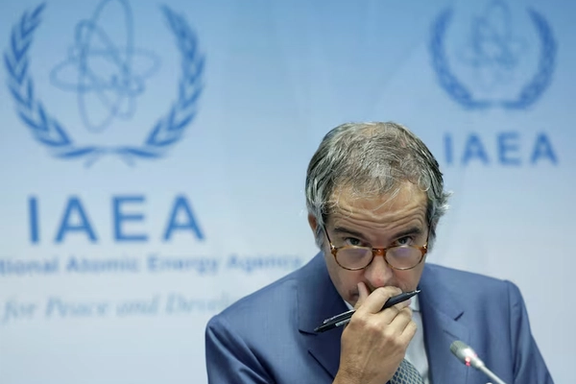
The head of the International Atomic Energy Agency (IAEA) warned on Tuesday ahead of a visit to Tehran that the diplomatic space to achieve another international deal over Iran's disputed nuclear program was shrinking.
“The Iranian administration must understand that the international situation is becoming increasingly tense,” Rafael Grossi said in an interview with AFP, “and that it is imperative to find ways to reach diplomatic solutions.”
Speaking on the sidelines of the COP29 climate summit in Baku, Grossi was due to travel to Tehran as tensions between Israel and the Islamic Republic mount and the hawkish new administration of President-elect Donald Trump begins to take shape.
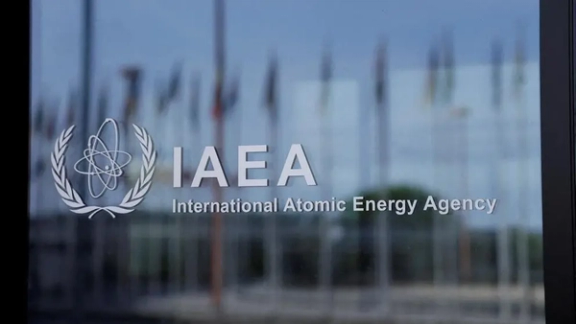
The IAEA, tasked with monitoring Iran's nuclear activities, has access to inspect Iranian facility, but Grossi said, "we need to see more." Citing the scale and ambition of Iran’s nuclear program, he called for increased transparency, adding "we need to find ways of giving the agency more visibility."
Grossi’s trip follows the recent US presidential election, which saw former president Donald Trump, known for withdrawing from the Obama-era Iran nuclear deal, return to office.
“I already worked with the first Trump administration, and we worked well together,” he said.
The original 2015 nuclear accord, brokered between Iran and six major powers—including the United States, Russia, China, Britain, France, and Germany—aimed to limit Iran’s nuclear activities in exchange for easing economic sanctions.
However, Trump’s withdrawal from the agreement in 2018 led to its unraveling, despite efforts to revive it in recent years. "It’s an empty shell," Grossi said of the current state of the deal.
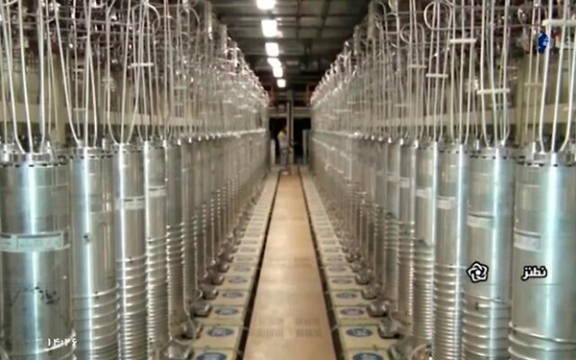
In the absence of a binding agreement, Iran’s nuclear program has expanded. The IAEA reports that Tehran’s enriched uranium stockpile has grown, with enrichment levels reaching 60 percent—approaching the 90 percent threshold required for weaponization. Tehran, however, denies any intention of developing nuclear arms.
Since taking office in August, Iran’s new president, Masoud Pezeshkian, has indicated a willingness to revisit diplomatic discussions surrounding the nuclear deal.
Grossi expressed cautious optimism about this overture. In a separate conversation with CNN’s Christiane Amanpour, he talked about Iran's continued verbal commitment to diplomacy, even as he referred to the lack of significant changes in Tehran’s actions.
“They have a big, big nuclear program,” Grossi told Amanpour. “They have a lot of nuclear materials that could be used eventually to make a nuclear weapon… And this is one of the reasons I’m heading to Tehran.”
He added that the IAEA's focus remains on diplomatic, strong solutions to prevent the situation from deteriorating further, particularly in light of potential responses from regional actors like Israel.
Grossi’s last visit to Iran, which took place in May, included a tour of the Natanz uranium enrichment facility in Isfahan province. At the time, he urged Iranian officials to implement concrete measures to address international concerns about their nuclear program.
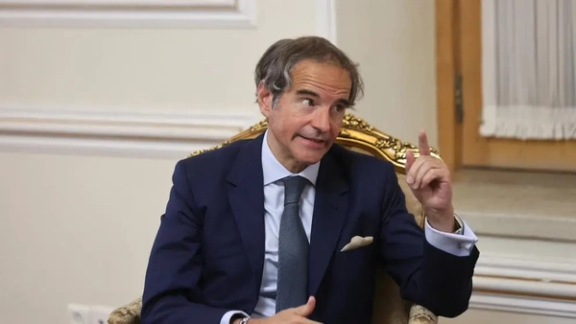
As Grossi heads back to Tehran, he seeks substantive progress with Iran’s leadership. “I’m hoping I’ll be able to plunge straight into the most important matters,” Grossi said, adding that while Iran’s administration has signaled an interest in re-engaging, meaningful action will be essential.
With diplomatic paths narrowing, Grossi’s visit may mark a critical juncture in efforts to contain Iran’s nuclear ambitions and reduce the risk of broader conflict in the region.

An independent Iranian filmmaker announced his intention to sell a kidney citing financial hardship, in a sign that Iran's faltering economy is pushing even middle class professionals toward desperate measures.
"I, Vahid Vakilifar, an independent filmmaker, 43 years old, blood type B negative, have decided to sell one of my kidneys due to my financial situation. Please send your offers to the following email address," he wrote in an Instagram post on Tuesday.
Iranians are struggling with high prices, sanctions and a crippling exchange rate.
The news prompted the Independent Filmmakers Association of Iran to issue a statement criticising the Iranian government. They linked Vakilifar's act to the state's repressive policies and highlighted the dire financial conditions faced by independent artists in the country.
"(It's) a shocking and painful act against a filmmaker half of whose works remain unreleased," the Association said. "Cinema authorities in Iran...impose increasing restrictions rather than improving conditions for filmmakers."
The incident is not an isolated phenomenon. Reports of young Iranians, particularly those in their 20s, selling their organs to make ends meet have been on the rise.
According to a report by Iranian economic outlet Tejarat News in March, being a young donor is regarded as an advantage, with young sellers referring in the advertisements to their age and athleticism as their strong points.
Most of the advertisements in the organ market are for kidneys, with each kidney fetching a price in Iran’s organ market between 3 to 6 billion rials (about 4,000 to $10,000).
According to Iranian regulations, kidney donors receive 800 million rials (around $1,300) as a "reward." However, the transaction is framed as a series of "agreements" between donors and recipients outside official mechanisms, allowing donors to gain additional financial benefits.
The high cost of living in Iran, coupled with inflation and unemployment, has pushed many into poverty.
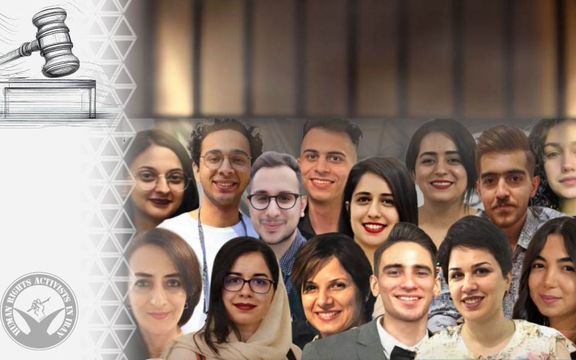
Iran has subjected its Baha’i community to 45 years of physical violence, imprisonment and denial of education and employment, a new report by a top Iranian human rights organization said.
The report, titled Outsiders: Multifaceted Violence Against Baha’is in the Islamic Republic of Iran, was launched in New York on Monday and was prepared by the US-based Abdorrahman Boroumand Center for Human Rights in Iran and Monash University Eleos Justice program.
"The Baha'i Faith's followers were seen as apostate infidels, and they have faced continuous and intense persecution, marked by episodes of extreme violence and systematic denial of life," Dr. Roya Boroumand, executive director of the Abdorrahman Boroumand Center, said in statement shared on X by the international non-governmental organization Baha’i International Community.
The report categorizes this persecution into three types of violence: direct, structural, and cultural violence.
Direct violence includes extrajudicial killings, torture, and arbitrary detention. The report highlights that structural violence stems from the Islamic Republic's laws and policies that systematically exclude Baha’is from equal rights, while cultural violence is reinforced through state propaganda, with Baha’is portrayed as “impure” and as “agents of foreign powers” to justify ongoing discrimination.
“This is a community stripped of its freedoms simply for exercising their rights to practice their faith,” Germany’s Ambassador to the United Nations, Thomas Peter Zahneisen, added at the report’s launch in New York.
“Despite torture, forced confessions, and other forms of abuse, the story of the Baha'is in Iran is not only one of suppression, but one of humanity, perseverance, and courage,” he added.
Mai Sato, UN Special Rapporteur on Iran, highlighted that Baha’is are excluded from Iran’s constitution, which justifies official marginalization. “The structural violence inflicted by the state is resisted and not embraced by the Iranian community,” she said in a statement coinciding with the report's launch.
“That is a hopeful and uplifting end to the report.”
The report connects the ideological basis of this persecution to Iran's central ruling doctrine of Velayat-e Faqih or clerical rule, which leaves little room for religious pluralism.
Baha’is, it added, are viewed as a theological and political threat and accused of allegiance to Israel and Western powers, deepening their marginalization.
The report’s findings align with recent independent findings from rights organizations. In July 2024, Human Rights Watch classified Iran’s treatment of the Baha’i community as “a crime against humanity of persecution.”
A joint statement by 18 UN Special Rapporteurs condemned “a sharp rise in attacks” on Baha’i women. Former UN Special Rapporteur on Iran Javaid Rehman said, “The Baha’is were targeted with genocidal intent and persecution.”
Researchers in the Boroumand Center report highlighted a shift in public attitudes toward the Baha’is.
“Our findings suggest that, despite repeated attempts to indoctrinate the public with anti-Baha’i sentiment, the Iranian population has increasingly resisted the policy of discrimination,” Christopher Alexander, a researcher on the report, said. “Direct and structural violence are perpetuated by the state, but there appears to be an increasing lack of internalization of this violent culture by the masses.”
The Islamic Republic’s treatment of Baha’is could constitute crimes against humanity under the Rome Statute of the International Criminal Court, the report said.
Researchers urged the international community to use universal jurisdiction to investigate and prosecute these crimes, while Baha’i representatives continue to call for urgent protections.
Bani Dugal, Principal Representative of the Baha’i International Community to the United Nations, said the report’s international attention “gives hope to those suffering persecution within the country and calls on the Iranian government to end its violent policies against all victims of human rights abuses in Iran.”

Israeli prime minister Benjamin Netanyahu on Tuesday said Iran's clerical rulers fear their own people more than anything, in the latest installment of a years-long series of videos addressed directly to Iranians.
"There’s one thing Khamenei's regime fears more than Israel. It’s you – the people of Iran," Netanyahu said in a video published on X.
“They spend so much time and money trying to crush your hopes and curb your dreams," he added. "Don't let your dreams die. Don't lose hope and know that Israel and others in the free world stand with you.”
Netanyahu published a similar video a few weeks ago, which he said proved popular and made him decide to do another one.
"Since I last spoke to you, the Khamenei regime launched hundreds of ballistic missile at my country, Israel," he said, asserting that the attack came at a cost of $2.3 billion. "That's how much they wasted of your precious money on futile attacks."
"The missiles did marginal damage to Israel, but what damage did they do to you that some could have added billions to your transportation budget? It could have added billions to your education budget. But instead, Khamenei exposed the regime's brutality and turned the world against your country,” he added.
Netanyahu pointed out that under a free Iran, the country’s children could receive world-class education, its people could enjoy advanced healthcare, clean water, and modern infrastructure.
Netanyahu expressed Israel's willingness to help rebuild Iran’s collapsing infrastructure, particularly its water systems, pointing to Israel’s advanced desalination technology as an example.
He concluded his message with a call to hope, referencing the Iranian slogan Women, Life, Freedom and encouraging Iranians to not let their dreams die and to continue striving for a free and prosperous future.